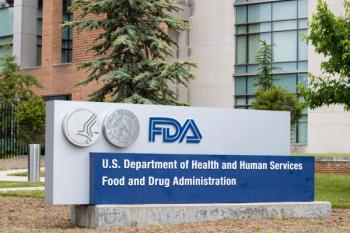
How Pharmacists Can Be the Change Makers at ACOs
Better care at lower costs is the ultimate goal across healthcare today. Here’s how pharmacists can help.
Better care at lower costs is the ultimate goal across healthcare today. As accountable care organizations (ACOs) become more common, managed care organizations (MCOs) and commercial health systems are working harder than ever to find cost-effective ways to optimize medication use. Pharmacists can help.
Pharmacists are positioned to help develop data-driven cost savings plans and quality initiatives, and experts shared how this can be accomplished in “Optimizing medication use in value-based models of care: Insight into developing a successful collaboration between a health system and managed care organization,” a session presented October 24 at the Academy of Managed Care Pharmacy (AMCP) Nexus 2018 in Orlando.
Presenters Christopher Diehl, PharmD, MBA, BCACP, a clinical pharmacist for Excellus BlueCross BlueShield, and Erica Lynn Dobson, PharmD, manager of pharmacy services for Accountable Health Partners highlighted how MCOs can use data to identify medications for targeted interventions, and how pharmacists can influence changes across clinically integrated networks. Diehl and Dobson described how collaborations between clinically integrated networks and managed care pharmacists work, and how these relationships could be developed further.
Diehl shared some insights from the presentation in a Q&A session with Managed Healthcare Executive (MHE).
MHE: What are your goals and takeaways for attendees?
Diehl: The goals of this session are to share our methods of collaboration with an ACO to achieve our mutual goals of improving quality and reducing costs for consumers and employer groups who purchase health coverage. We are presenting in such a way so as to show both the health plan’s view and the ACO’s view of where we were able to align our goals, overcome barriers, and achieve strong results. Our primary message will be that these collaborations must be a true partnership in which both sides are willing to compromise. Our results prove that it can work effectively, but it must be through teamwork, and not simply a one-way relationship.
MHE:: What are some specific examples of how these initiatives can reduce cost and improve quality?
Diehl: We focused on our efforts with Glumetza, a drug used for diabetes that had a drastic price increase, as well as our efforts around choosing low-cost inhalers. Also, we will be discussing our attempts at improving quality by focusing on efforts with the new transitions of care medication reconciliation measure.
MHE: How can the management of high-cost medications and biosimilars improve health outcomes while also reducing cost? While biosimilars are replacing some higher-cost biologics, this has not caught on as fast as it has overseas.
Diehl: Biosimilars are difficult because there are still some unknowns in terms of regulation and evaluation. While biosimilars are coming in at a lower cost, physicians have been somewhat hesitant to begin prescribing. Using our relationship with the ACOs, we are able to provide information and allow the ACOs to work with their own physicians in ways that can be more effective than traditional managed care methods. We continue to educate and promote biosimilars when feasible, but also have another avenue of communication when needed.
MHE: How can outcomes and costs be improved?
Diehl: We hope that our session will lead the attendees to have more effective relationships with their ACOs. By highlighting opportunities and describing the barriers and challenges to our success, we can help provide attendees with strategies and solutions to overcome those barriers and improve their relationships.
Rachael Zimlich, RN, is a writer in Columbia Station, Ohio.
Newsletter
Get the latest industry news, event updates, and more from Managed healthcare Executive.

























